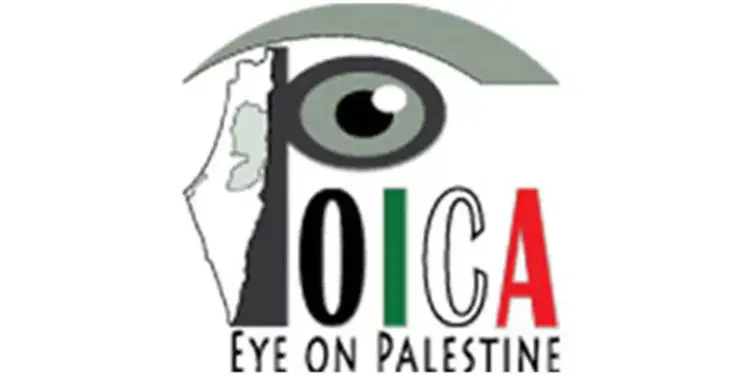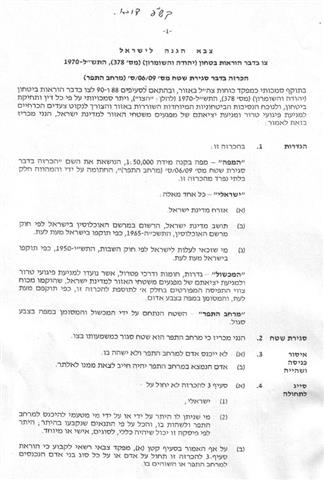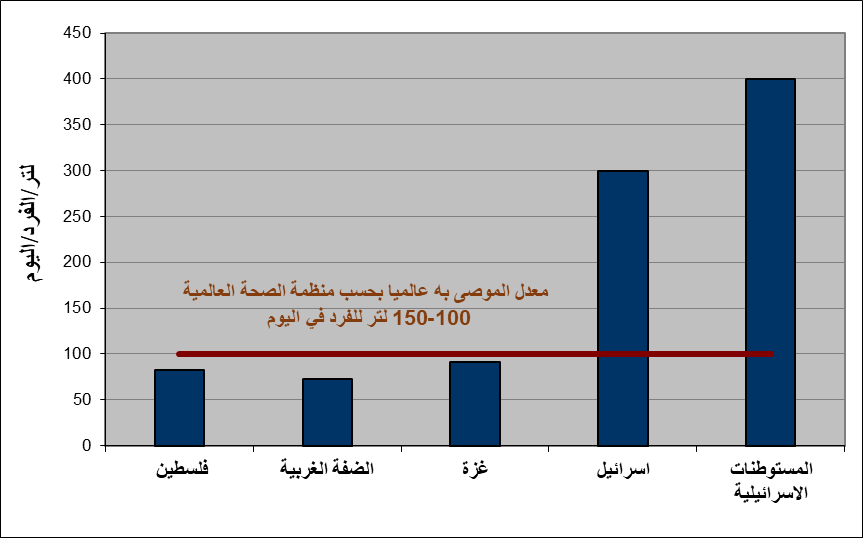The situation in Gaza Strip definitely involves several fields of analysis but, an incredibly strong understanding of the conflict will comes after briefly taking a socio-economic overview over this piece of land. The research has been conducted considering two different levels about the economy on Gaza : the internal situation and the implications around the conflict.
Talking about the economy within the borders, even before this last Israeli attack, means to consider the last two years of life in Gaza, since clashes among rival clans, shifting allegiances between Fatah and Hamas, and general disarray characterized the months following the Hamas takeover. Palestinians in Gaza have traditionally been more conservative than their brothers in the West Bank , which can be partly attributed to the correlation between poverty and radicalism rooted in the very bad economic situation. Moreover unconnected territories, banned interchange between the Strip and the West Bank, and the Israeli closures and military occupation intensified after the second Intifada have constantly decreased the economic efficiency and independence of Gaza . In 2007, economic opportunities were all but nonexistent, for example, salary payments to about 160,000 civil servants were suspended and only later partially covered through the EU's Temporary International Mechanism and bilateral donor funds; public investment in the last two years has nearly died away, most private businesses have ceased their operations and import-export restrictions have caused 95% of industrial activity to be suspended. Also threat of destruction has been kept away any potential donors or investors. 'The risk to become virtually 100 percent aid-dependent, closed-down and isolated community within a matter of months' -as announced by UNRWA on August 2007 – it's now a reality. The public infrastructure has been devastated, first by Israeli military operations, and then by a lack of tools and cement. Damage done to homes, land and infrastructure (of course, not considering human beings) amounts to tens of millions of US dollars. Palestinians in Gaza cannot get access to the raw materials they need, and even if they could, the possibility of exporting products are slim to none.
This, along the agriculture sector which has been rather particularly ravaged, as farmers must contend with Israeli regulations that, for security reasons, restrict them to growing only crops that do not rise above 40 centimeters. Agriculture in the Strip was once dominated by citrus crops before intervened in 1968. The Israeli citrus market did not want the competition from Gaza, and even strawberries and carnations (that Gaza was known for) more recently can no longer be shipped outside of the territory and are often left to rot at closed checkpoints. According to a poll released in early 2008, economic hardship was the most worrying issue for 30% of Gazans, a shocking statistic in a place where security concerns and political turmoil would be expected to be the primary causes of distress.
How has this affected jobs and living standards? The lack of commerce and trade has led to an unprecedented increase in unemployment, which had reached approximately 50% in May 2008. Over 35.000 people were employed in 3900 factories throughout Gaza in June of 2005, but those numbers had fallen to only 1700 employees and 195 factories just over two years later. Also, a lack of fuel has crippled the once-thriving fishing industry in Gaza , leaving many fisherman without work. Ironically, the Gaza economy was once deeply intertwined with 's, and the economic implications of the closures are exacerbated by the loss of such a partner. In 2000, there were 24000 Gazans who were employed in ; today there are nearly zero. The continuous increase in public sector employment is a direct result of this situation. The Hamas takeover created many new administrative jobs, but the distribution of salaries has been sporadic. In all, over one-third of all Palestinians in the occupied territories are supported by public salaries. The crisis has led to a drastic increase in poverty: the official rate for 2007 was 51.8%, compared to 47.9% in 2006. The percentage of Gazans in Deep Poverty continued to rise, increasing from 33.2% in 2006 to 35% in 2007. These rates reflect actual consumption. If remittances and food aid are excluded and poverty is based only on household income, the poverty rate in Gaza would soar to 79.4% and the Deep Poverty rate increase to 69.9%. This illustrates the high levels of aid dependency, particularly taking into account the fact that the majority public sector salaries are financed with foreign aid. About 80% of the Gazans population relies on some form of UN humanitarian assistance, and according to the Palestinian Federation of Industries, approximately 95% of Gaza 's industrial operations have been suspended due to Israeli restrictions.
Until foreign governments are willing to accompany their monetary handouts with corresponding political efforts, their investments will be going to waste. Overall, the benefits of development under occupation tend to be illusory and negligible, but they are nonexistent in Gaza . Gaza banking sector activity is estimated to have dropped from 40% of total Palestinian banking to about 7%. Their ability to function is also compromised by the restrictions on the entry of currency intro Gaza . Also municipalities, providing key services such as water, sewage, solid waste etc. are facing a deep financial crisis. The impoverishment of the population and the near absence of private sector activities imply that municipalities are unable to collect fees for service provision and are unable to pay staff salaries. Their ability to provide basic services is also severely constrained by their inability to import spare parts and supplies for the provision of basic services such as water and sanitation.
That's briefly concerning about internal economic situation. Illustrating some of the few business implications of the conflict will complete this simple essay, made to analyze the recent events under a less emotional point of view (which must not be forgotten anyway).
The attack on the Gaza Strip costs a great deal of money to Israel, but for the Palestinians it is not exactly a 'cost' – the people of Gaza don't really have other options than to be bombarded by Israel – so a better word for describing the situation is probably 'damage' and not 'cost.'
The Israeli treasury has already allocated about 400 million Euros just for the military costs of the war. Compensations to Israelis living near the Gaza Strip (who suffered from rocket attacks and lost many days of work, as well as some damage to their property) could be compensated with about 120 million Euros. Past experience teaches us that the costs of Israel's wars is always higher than the first estimates – the military demands more money after each war, with military officers threatening that if the money isn't paid, Israel will not be properly defended. Also, residents of the affected area will probably appeal their compensations in court and demand more money.
On the Palestinian side, it's very hard to estimate the damage. Even if we set aside the terrible loss of life for a moment and focus only on the economic costs, the war has many different effects. Till yesterday, assessors couldn't move around in the Gaza Strip and even begin to estimate the damage, as the invasion still raged. The infrastructure in Gaza has probably been severely damaged, with many years and billions of Euros required for repairs – roads, houses, schools, health facilities, utilities (water, electricity) – as have all been targeted by Israeli bombs and shells.
Yet, the real damage to the Palestinian economy is even deeper, and much more long-term. It involves the rehabilitation of the hundreds of thousands of children who have been traumatized by 's attacks, and had to live for extended periods without a balanced diet, without schooling and medical attention. The long-term diminished productivity of this generation will probably adversely affect the future economic growth of the Gaza Strip for decades. Also, the rehabilitation of thousands of injured people, many of them may never regain full health, will also create a heavy burden on the Palestinian economy.
There are also economic benefits from this attack, especially for Israeli arms companies that use such attacks as field-testing grounds for newly developed weaponry, and use the images of the fighting as promotional videos, convincing their clients that their products have already been proven effective by the Israeli army. The attacks also create uncertainty regarding the situation in the Middle East , and boots the profits of oil companies as a result. This is especially important now, since the global economic crisis has caused steep reductions in the demand for oil, and with it the profits of oil companies.
It's too early to say who will pay any compensations and how much. Clearly, the invasion is illegal – is obligated to protect the Palestinians under its care, not to attack them. However, Israel isn't willing to participate in a process to determine the required compensations and to pay them, and only when the International community makes it clear that Israel has no other choice and will suffer heavy sanctions for failing to pay its debts, who knows if Israel will begin to pay compensations to the people which it has harmed so severely? In any cases, International Aids and funds to restore a normal situation are allowed to go into Gaza only after being 'processed' through the Israeli Authority, which reclaims to the incoming process of money in the Holy Land as International Cooperation.
'It was the summer of 1985 and I was taken on a tour of Gaza by a friend named Alya. As we drove along Gaza 's coastal road I saw an elderly Palestinian man standing at the shoreline with some boxes of oranges next to him. I was puzzled by this and asked Alya to stop the car. One by one, the elderly Palestinian took an orange and threw it into the water. His was not an action of playfulness but of pain and regret. His movements were slow and labored as if the weight of each orange was more than he could bear. I asked my friend why he was doing this and she explained that he was prevented from exporting his oranges to and rather than watch them rot in his orchards, the old man chose to cast them into the sea.'
Prepared by:
The Land Research Center
LRC











